Royal-Imperial Route - Path through the Most Important Landmarks and Attractions of Poznań
Nearby: Poznań
What to See in Poznań in One Day?
The Royal-Imperial Route is the main tourist path that takes you through the most important places and landmarks in Poznań. It's perfect if you have only a short time to explore the capital of the Greater Poland region, like one day. The route starts right next to the Poznań train station, goes through both the Royal and Imperial castles, towards the market square, and then to Ostrów Tumski, the oldest part of Poznań.

Poznań Train Station
The train station in Poznań has 11 platforms, underground and overground passages, and is connected to the bus station and a shopping mall. It might feel like a maze, and you can easily get lost here - if you want to head towards the Old Town, it's best to use the overground passage and head towards the Dworcowy Bridge.

The designated walk takes you through Poznań's main attractions:
- What to See in Poznań in One Day?
- Poznań Train Station
- The designated walk takes you through Poznań's main attractions:
1. Karol Marcinkowski Park
Near the station, there's a park with a pond and a playground. Even if you don't stop here, the row of trees will quiet the city's noise and provide pleasant shade.

2. Imperial Castle and Adam Mickiewicz Park
Behind the park, you'll find the impressive Imperial Castle, the residence of the last German Emperor, Wilhelm II. It was built to emphasize German presence and power in Greater Poland. After World War I, the castle became part of Poland. It's one of Poznań's main tourist attractions and an important part of the city's heritage. It's worth visiting not only for its impressive architecture but also for its rich cultural offerings.
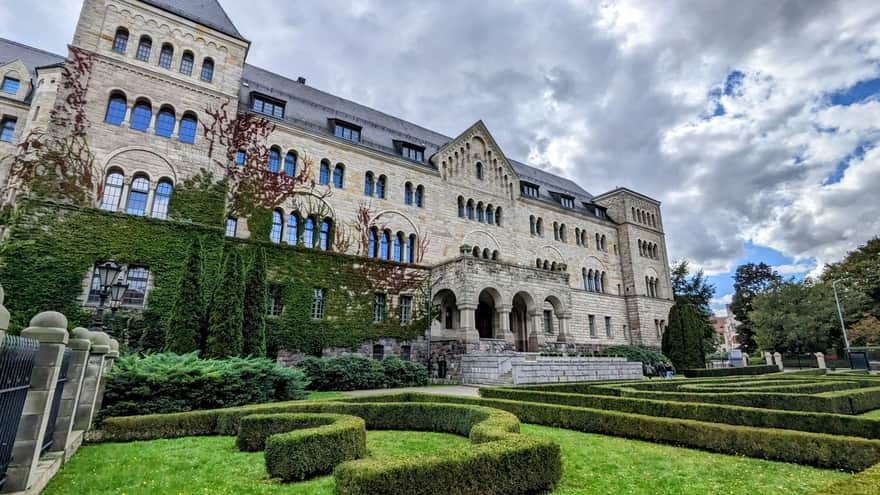
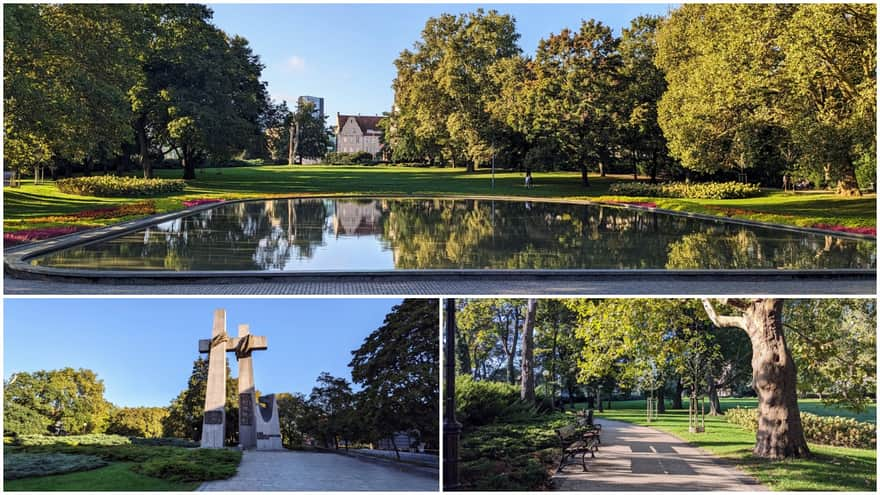
3. 27 Grudnia Street, Freedom Fountain, Stella, Golem
A few meters past the castle, you'll enter 27 Grudnia Street - one of the main streets of the Old Town. Laid out in the early 19th century, it was called Berlinerstrasse because it led to the road to the Prussian capital. Recently renovated, the street shows what a car-free space looks like: lots of greenery, two wide sidewalks on both sides, a bike path, and a tram line.
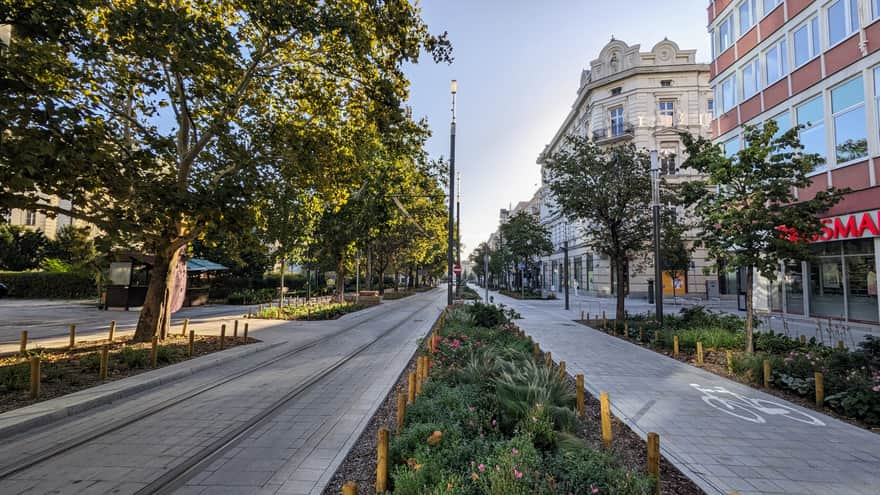


4. Royal Castle, Museum, and Viewing Tower
The Royal Castle in Poznań was originally built in the 12th century by the first rulers of Poland, especially by Przemysł II. The castle served as the seat of the Greater Poland dukes and was reportedly visited by Polish rulers. After the partitions of Poland in the 18th century, the castle was used by various Prussian and later German authorities until the end of World War II. Today, it houses the Museum of Applied Arts.
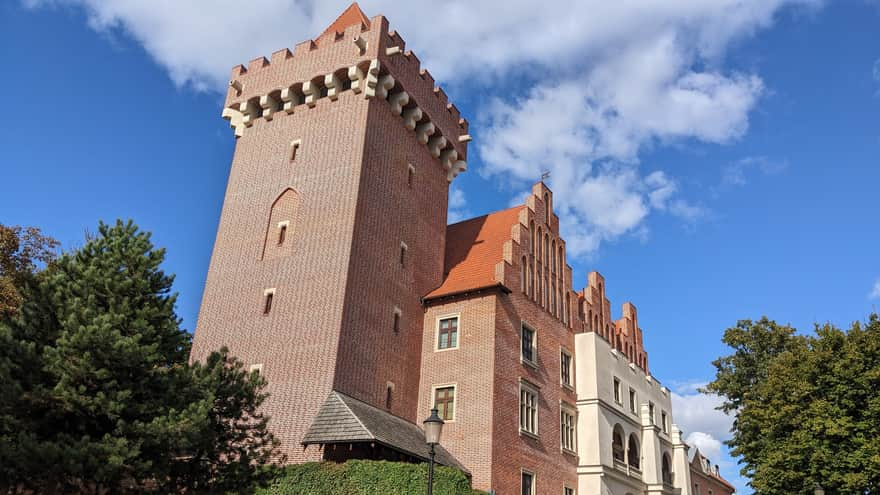
Viewing Terrace at the Royal Castle
The tower of the Royal Castle on Przemysł Hill is one of the best viewpoints of the Old Town! You can take an elevator to the terrace, making it accessible for seniors and children. The terrace is two-level - the first glassed part is accessible right after exiting the elevator. You can reach the outer terrace by stairs.

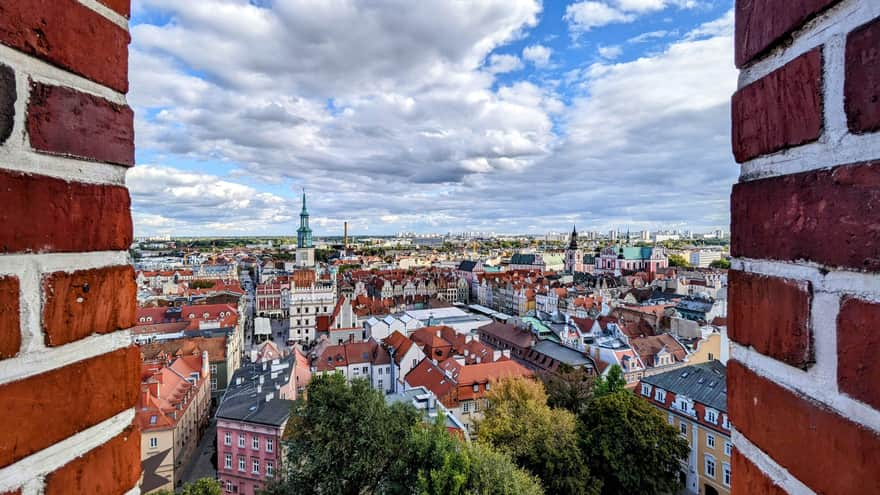
Museum of Applied Arts in the Royal Castle in Poznań
The Museum of Applied Arts is a branch of the National Museum in Poznań. The exhibition here is entirely dedicated to applied arts, which are decorative items used by people in everyday life. The collection includes textiles, dishes, and furniture from the Middle Ages to the present.
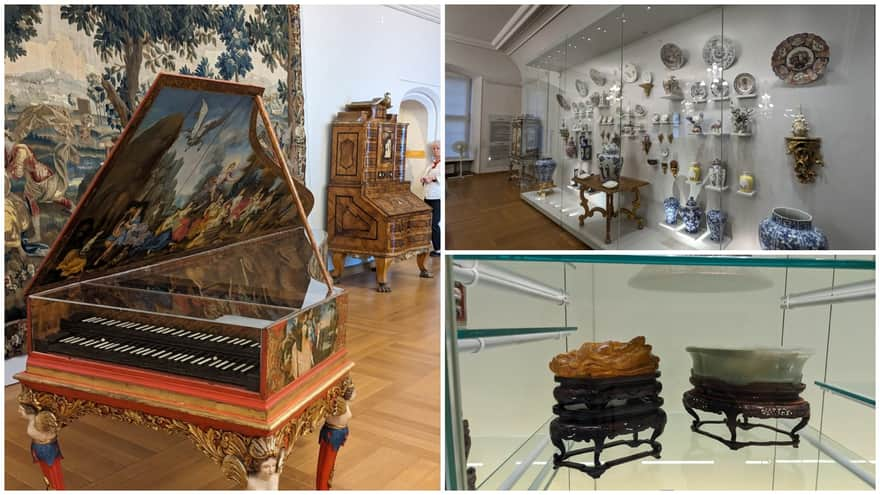
5. Market Square in Poznań
In the heart of the Old Town is the market square, surrounded by colorful townhouses. The Poznań Market Square is one of the oldest in Poland, with a history dating back to the Middle Ages. Today, it's one of the most representative places in Poznań - in the evenings, it has a special atmosphere when the lanterns light up the streets, and the cafes and restaurants have a pleasant vibe. So, what should you see and pay attention to when you're at the Poznań market?
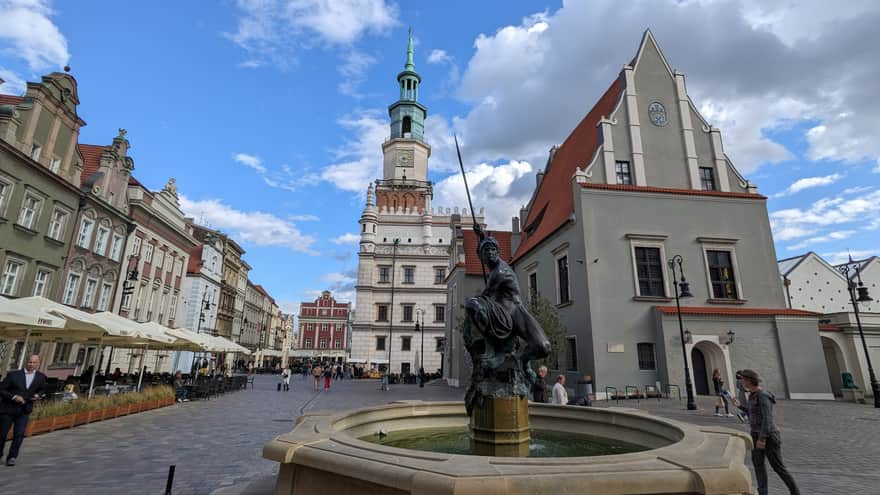
Town Hall: Goats, Fountains, and Pillory
The Poznań Town Hall is one of the most beautiful! Its decorations not only serve as ornaments but also convey important messages to the residents and guests of Poznań: advice, warnings, and stories about Polish history. On the attic of the town hall, you'll see portraits of Polish kings. The Latin inscriptions are quotes from ancient philosophers. Among them are the words of Pythagoras "The best city is the one that has good citizens."
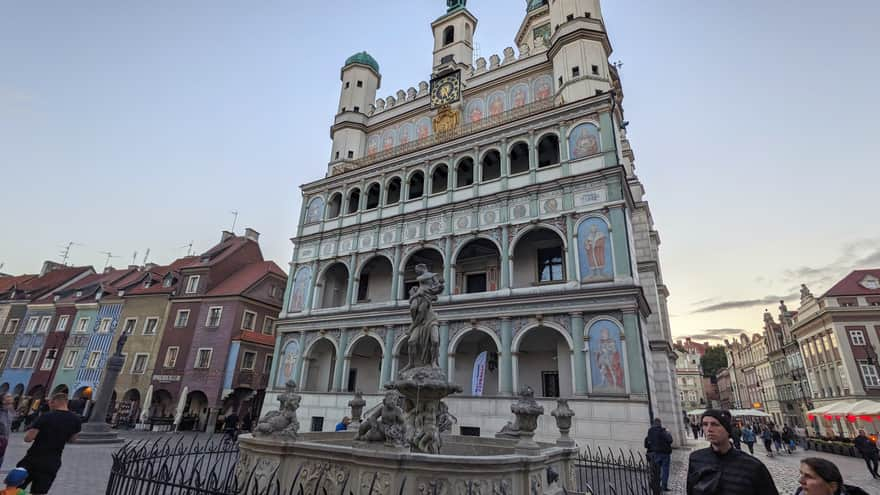
The symbol and attraction of Poznań are the goats, which come out of the central tower of the town hall at noon and butt heads. Below, you can listen to the legend associated with the Poznań goats and print a coloring page for children:
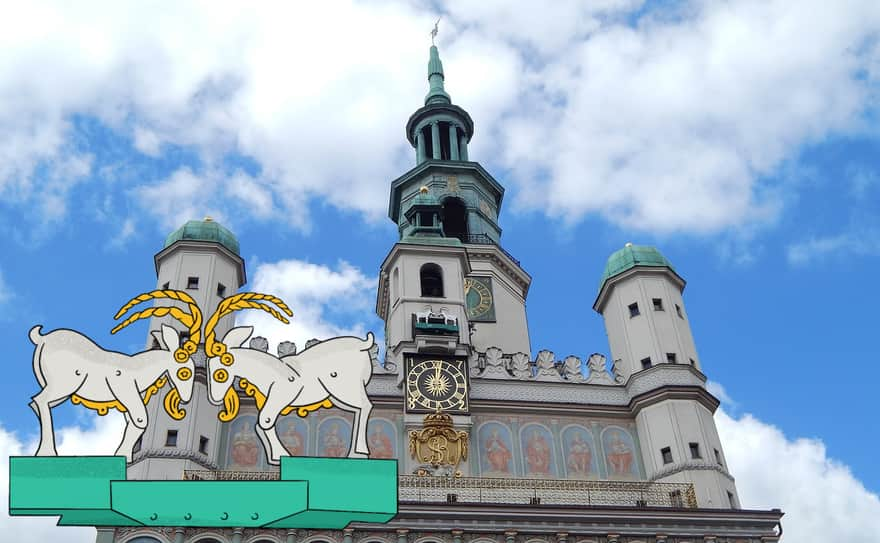
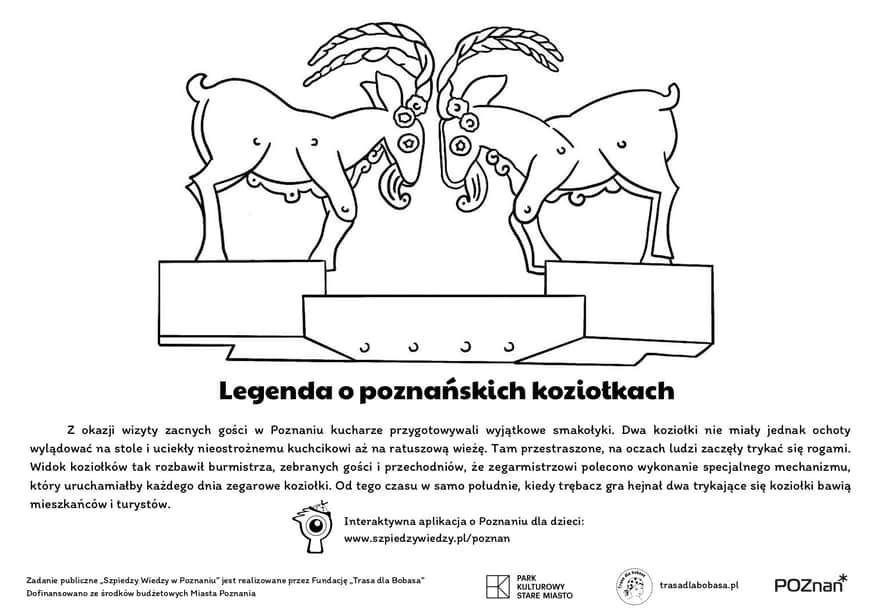
Next to the town hall building, you'll also see the pillory. This is where punishments were meted out to criminals. It was done right here, in the city center, as a warning to others. The punishment could be just being chained to the pillory so everyone could see who was found guilty. The date on the post shows that it is almost 500 years old!

Budnicze Houses
Right next to the Town Hall are the charming Budnicze Houses belonging to poorer merchants. They look like they came straight out of a fairy tale. In the past, there were wooden stalls placed tightly next to each other, the width of a shop counter. Above them, merchants began to build themselves apartments. There was little space across, so they added more floors to the townhouses, which is why the houses are so narrow.

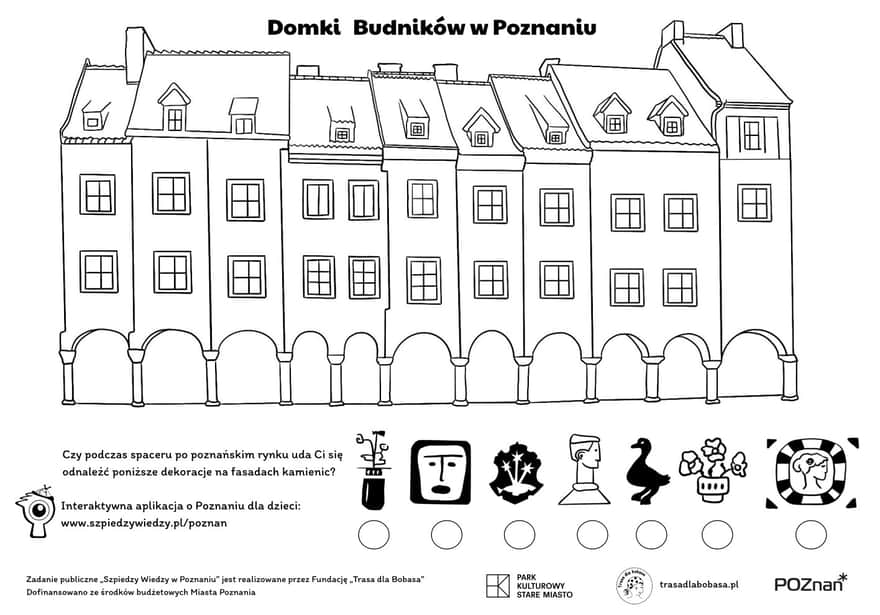
Bamberka Fountain
The Bamberka Fountain is one of the most characteristic elements of the Old Market Square in Poznań. It was created as a public well. There were troughs for animals. The monument depicts a girl in a traditional Bamber costume and is meant to commemorate the German settlers from the Bamberg area who came to Poznań.
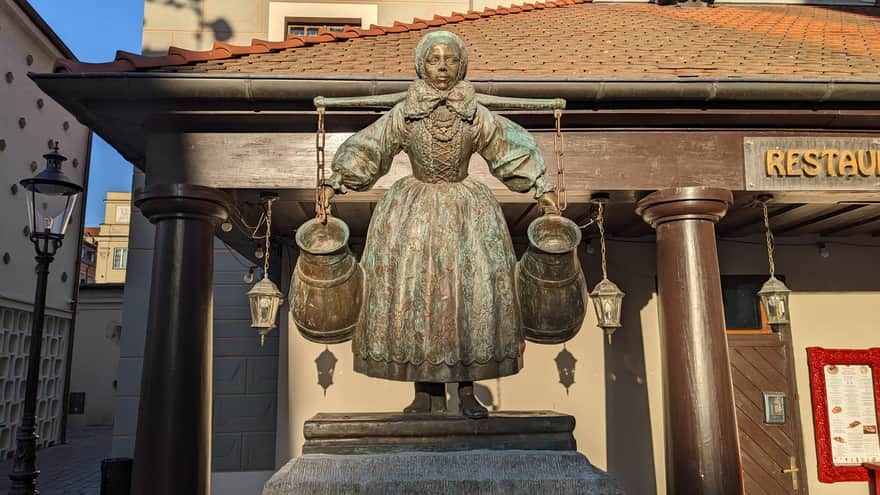
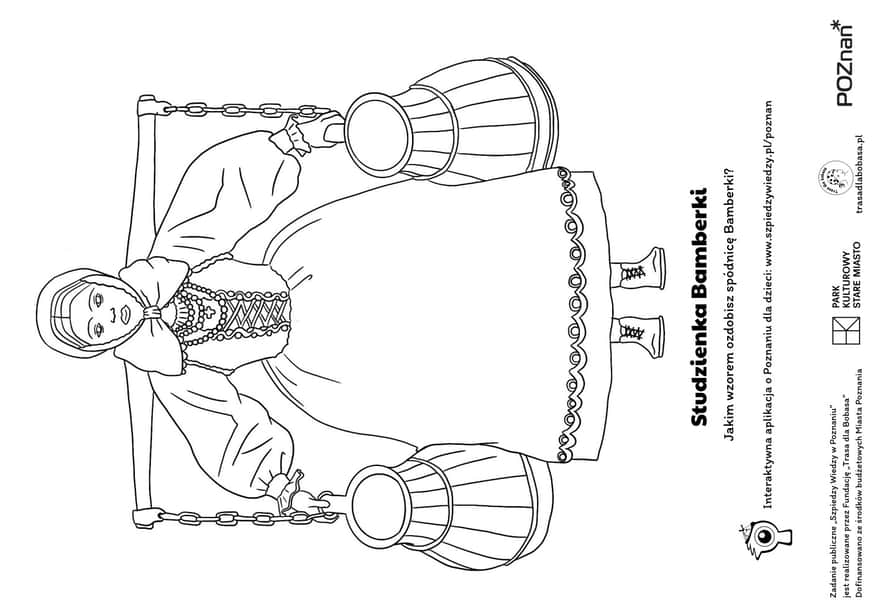
City Hall Courtyard
In the past, there was the Collegiate Church of St. Mary Magdalene here, which was one of the largest churches in Poland. Unfortunately, it has not survived to our times. Today, in the courtyard of the City Hall, you can see the monument of the Poznań goats and... one of the Wrocław dwarfs!


6. Ostrów Tumski - the Oldest Part of Poznań
Ostrów Tumski is an island on the Warta River. It's the place where the history of Poznań began, and also one of the oldest places related to the beginnings of the Polish state. On Ostrów Tumski, or Cathedral Island (because "ostrów" means island and "tum" - cathedral), is the Cathedral of Saints Peter and Paul. Perhaps this is where the baptism of Duke Mieszko I took place? Here, in the Golden Chapel, the first rulers of Poland, Mieszko I and Bolesław Chrobry, were buried. In the Genius Loci archaeological reserve, you can see the medieval fortifications from the time of Mieszko I.
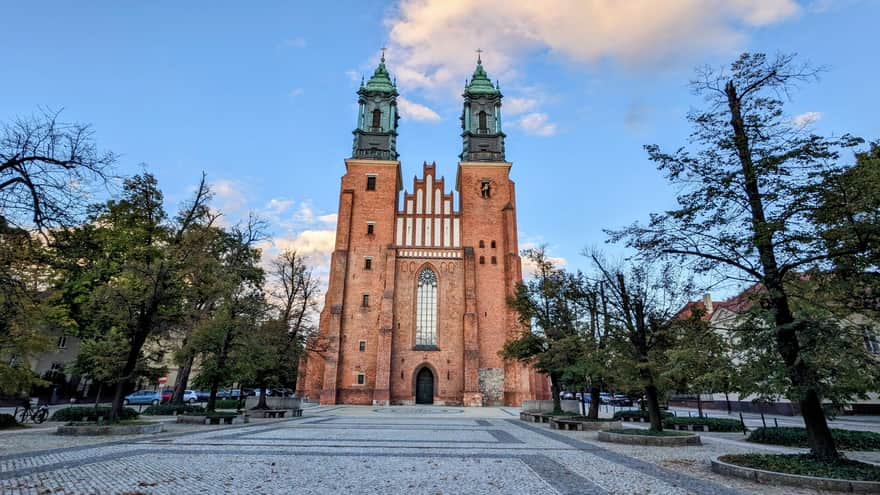
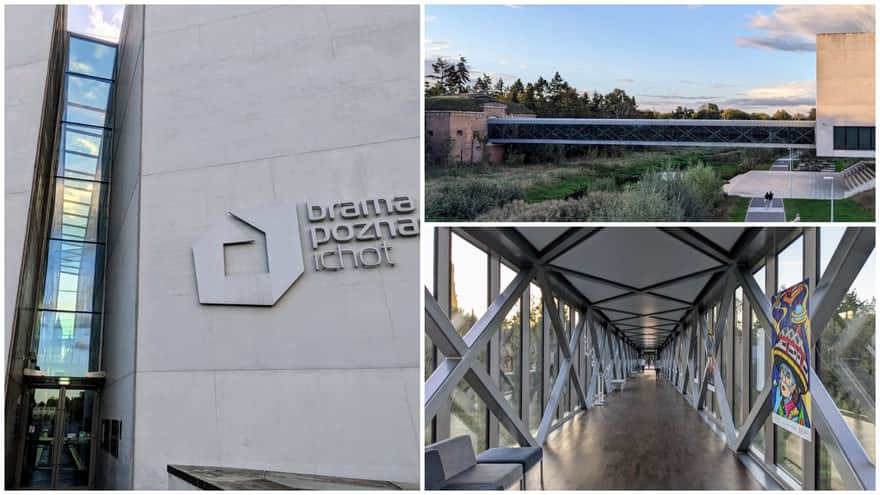
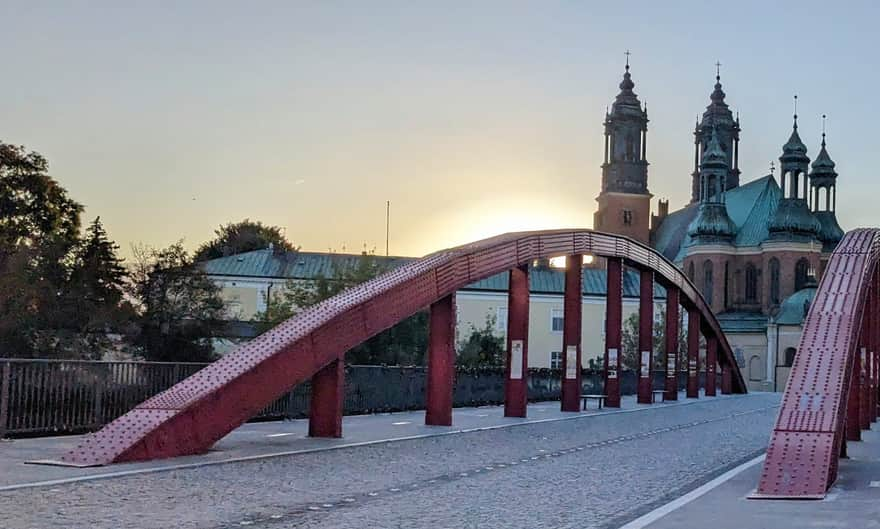
7. Mural in Śródka
This extraordinary, three-dimensional painting titled "Śródka Story with a Trumpeter on the Roof and a Cat in the Background" tells the story of the district. It is located at the intersection of Śródka Street and Śródecki Market.

8. Lake Malta, Maltanka Park Railway, and Zoo
If you have a bit more free time, it's worth continuing the walk: from the Roundabout in Śródka along Lake Malta runs the route of one of the last narrow-gauge railways in Poland, popularly called Maltanka. The train covers a distance of about 3.5 km and stops at the Poznań Zoo.

Publish Date:



